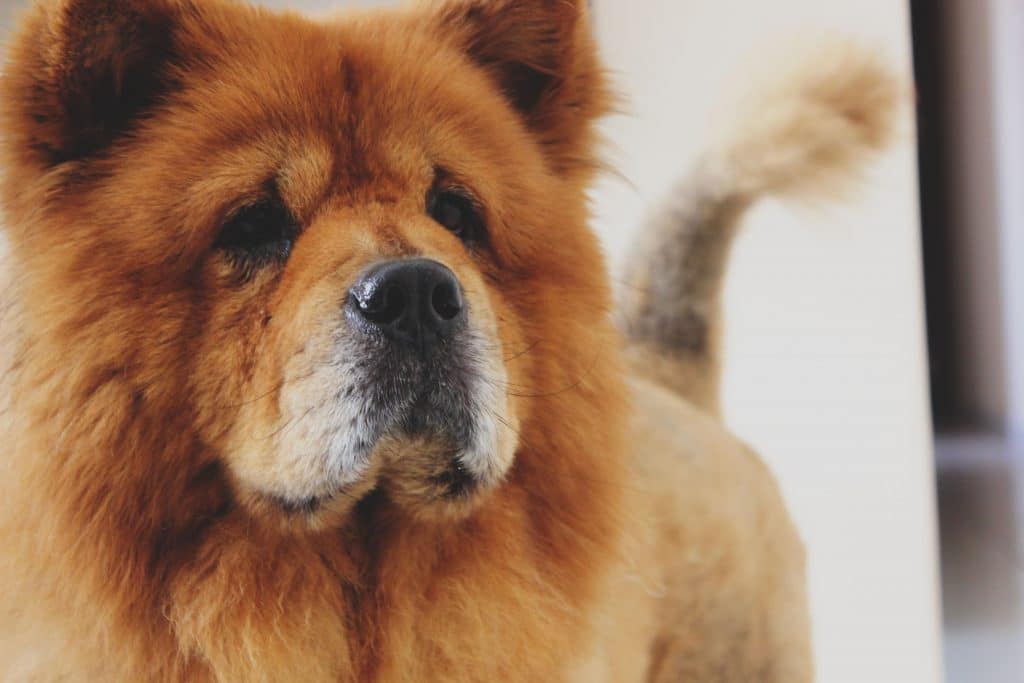- Not a substitute for professional veterinary help.
Does your puppy have ongoing sniffles or congestion? It’s hard to see our pets be uncomfortable, so you’re probably wondering how to help him as soon as possible.
Here are the most common reasons for your puppy’s runny nose and what you can do to help them feel better.
Allergies
Just like humans, puppies can develop allergies to different things in their environment. Based on my own interactions with people and their dogs, these environmental sensitivities are becoming more and more prevalent.
Your puppy’s runny nose could be a symptom of inhalant allergies, also known as contact allergies. Typical inhalant allergens are pollens from trees, grasses, and weeds. Molds, mildew, and house dust mites are also common ones.
Other symptoms
- Itchy skin
- Runny eyes
- Sneezing
How to help
The most obvious solution—removing or avoiding the allergen—is the most difficult. You must know the exact cause of the reaction. That can be accomplished with the help of your veterinarian and an allergy blood test.
You can also consult with your veterinarian about medications to block allergic reactions. They might suggest anti-inflammatory drugs, like corticosteroids. Another option is antihistamines, like Benadryl.
Be sure to check with your veterinarian for the best option for your puppy and the correct dosage.
Blockage
Dogs put their noses to use all day every day, sniffing here, there, and everywhere. If you notice a discharge from just one of your dog’s nostrils, there’s a possibility something is stuck. It could be anything from a leaf particle to grass to…well, use your imagination!
Other symptoms
- Pawing their nose
- Sneezing
- Nose bleed
How to help
Try to look up your dog’s nose to see if there’s really something stuck. If you see the object causing your puppy’s discomfort, try removing it with your own fingers (if it’s within reach). More likely, you’ll need to use tweezers with gentle care.
Puppies are pretty wiggly, so enlist someone to help keep your pup’s head still.
If you can’t see anything, try the clever mirror test. Place a mirror underneath your dog’s nose. If it fogs up unevenly, you can confirm something is truly stuck and which nostril it’s in.
Contact your vet to have the object removed if you can’t do it easily.
Distemper
Canine distemper virus is serious and difficult to diagnose. However, it is possible for puppies and young dogs to overcome.
I can personally attest to this. My spirit animal, Chance, had distemper when he was a young dog in foster care. The rescue organization wasn’t sure he’d pull through, but he did. He was a strong-willed Australian Kelpie mix who lived a long, adventure-filled life to the age of 13.
Other symptoms
People often mistake distemper for a cold because the symptoms are much like an upper respiratory infection and it can progress to pneumonia.
- Fever
- Discharge from the nose and eyes
- Sneezing
- Vomiting
- Diarrhea
Prevention
There’s a series of vaccines and booster shots available to prevent the contagious distemper virus.
Treatment
You should seek medical attention if you suspect your dog has distemper. It often requires inpatient supportive care.
Be prepared that it can take several weeks for puppies and young dogs to recover from canine distemper. Your veterinarian will most likely prescribe respiratory medications for your puppy.
For rockstar dogs who recover from distemper, it can lie dormant for many years and then resurface. That’s what happened with my Chance. Around age 11, he started experiencing strange neurological issues. With the help of acupuncture and holistic supplements, he lived a beautiful, quality life for two more years.
Dog flu
Canine influenza is a contagious virus that spreads quickly at dog parks, grooming facilities, daycare centers, kennels, and other social canine places. It can spread through direct contact or contaminated items like water bowls, blankets, mats, leashes, and so on.
Other symptoms
- Fever
- Sneezing and coughing
- Lethargy
- Lack of appetite
Treatments
If your puppy has a mild case, keeping a close eye and providing good, restful care may be enough. However, if the above symptoms emerge and a clear runny nose turns into colored discharge, contact your veterinarian.
Various treatments may be recommended, including antibiotics, intravenous or subcutaneous fluids, oxygen therapy, and fever-lowering nostril anti-inflammatory drugs (NSAIDs).
Infection
If mucus or pus are coming out of your puppy’s nose, he or she could have a bacterial, fungal, or viral infection.
Other symptoms
- Bad odor
- Nosebleed
- Coughing, choking or a “reverse sneeze” due to postnasal drip
Treatment
Your veterinarian will provide remedies based on the diagnosis.
- Antibiotics for bacterial infections
- Antifungal drugs for fungal infections
- Surgery may be recommended for chronic infections
Kennel cough
This is the canine version of a cold. It’s also known as Bordetella. Just like humans, some colds will run their course. Other colds may require medical attention. Similar to canine flu, kennel cough is contagious. Keep any healthy pets away from infected puppies.
Other symptoms
- Dry, hacking cough, which is frequently followed by a gagging sound
Prevention
The Bordetella vaccine should be given to your puppy at 8 weeks and 12 weeks of age. After that, once a year. Most grooming and boarding facilities require it.
Treatment
Usually, kennel cough goes away on its own. It may start clearing up in as little as 5 days, but can keep hanging on for up to 20 days.
Suggestion for care at home
- Keep plenty of water available
- Wipe off discharge to keep puppy comfortable
- Allow plenty of rest
- Alleviate congestion with warm, humid air—use a humidifier or let your puppy rest in the bathroom when you shower to take in the steam
Go to your vet immediately if your puppy shows any of these signs:
- Trouble breathing
- Stops eating or drinking
- Becomes overly lethargic
- Appears to be in pain
Nostril problems
Some dogs—especially flat-faced breeds, like pugs, French bulldogs, Boston terriers, and bulldogs—are prone to runny noses.
Other symptoms
- Noisy breathing
- Heavy snoring
Treatment
If your puppy has small nostrils or cartilage issues, your veterinarian may recommend surgery after he or she becomes a fully grown adult.
Keep a Close Eye
Just like when humans have a runny nose, clear discharge is not usually something to worry about. However, puppies do need extra care. If the discharge turns thick and changes to yellow or yellow-green, it’s wise to reach out to your veterinarian.



